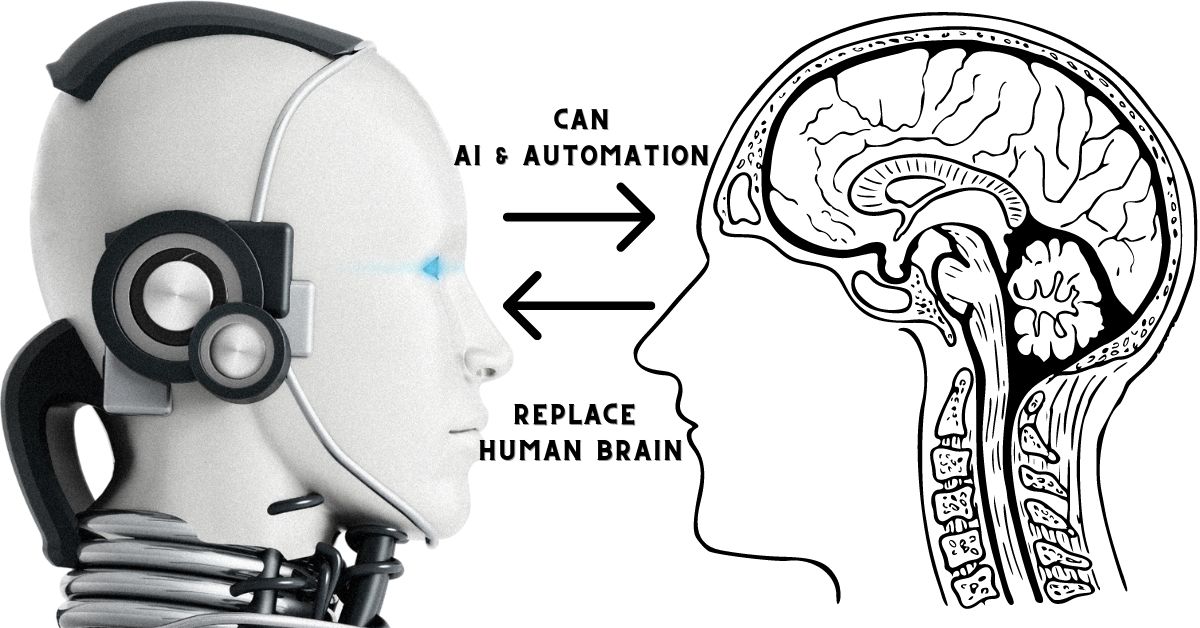The world has been rapidly changing in recent years, and one of the biggest drivers of this change is the emergence of AI and Automation. From self-driving cars to voice assistants like Siri and Alexa, AI has been revolutionizing the way we live and work. However, with the rise of AI technology, there is a growing concern that AI bots may replace human in various industries. Let’s explores the possibility of such an event and its implications for the future of work.
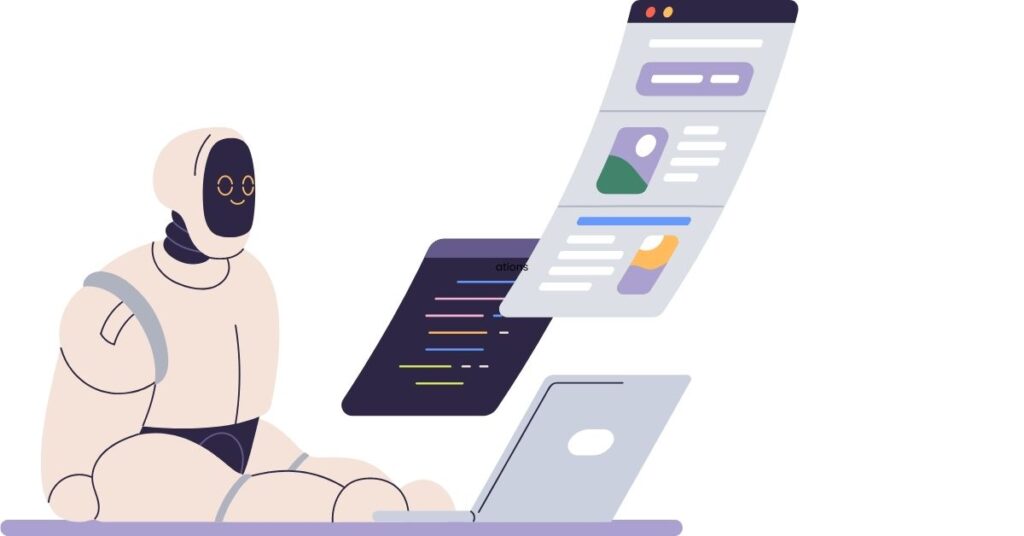
The Rise Of AI And Automation
Artificial intelligence and automation have been around for many years, but recent advances in technology have accelerated their growth and adoption. AI has become increasingly sophisticated, with machine learning algorithms that can analyze vast amounts of data and learn from it. Automation, on the other hand, has become more efficient and cost-effective, with robots and machines that can perform tasks faster and with greater precision than humans.
As a result, industries across the board are looking to implement Artificial Intelligence and Automation to improve productivity and reduce costs. From manufacturing and logistics to healthcare and finance, there are few sectors that have not been affected by the rise of AI and automation.
Will AI Bots Replace Humans?
With the increasing use of AI and automation, there is a growing concern that these technologies may eventually replace human altogether. The fear is that AI bots will become so advanced that they will be able to perform tasks that were previously the exclusive domain of humans and, in doing so, render human labor obsolete.
While this scenario may seem like science fiction, there is some evidence to suggest that it is not as far-fetched as it may seem. For example:
- Amazon has already deployed robots in its warehouses that can pick and pack items faster and more efficiently than humans.
- Autonomous vehicles are being developed that could potentially replace human drivers in the transportation industry.
- AI-powered chatbots are being used to handle customer service inquiries, potentially replacing human customer service representatives.
These are just a few examples of how AI are already beginning to replace human workers in some industries. As these technologies continue to develop and improve, it is likely that they will become even more capable of performing tasks that were once the exclusive domain of humans.
The Benefits Of AI And Automation
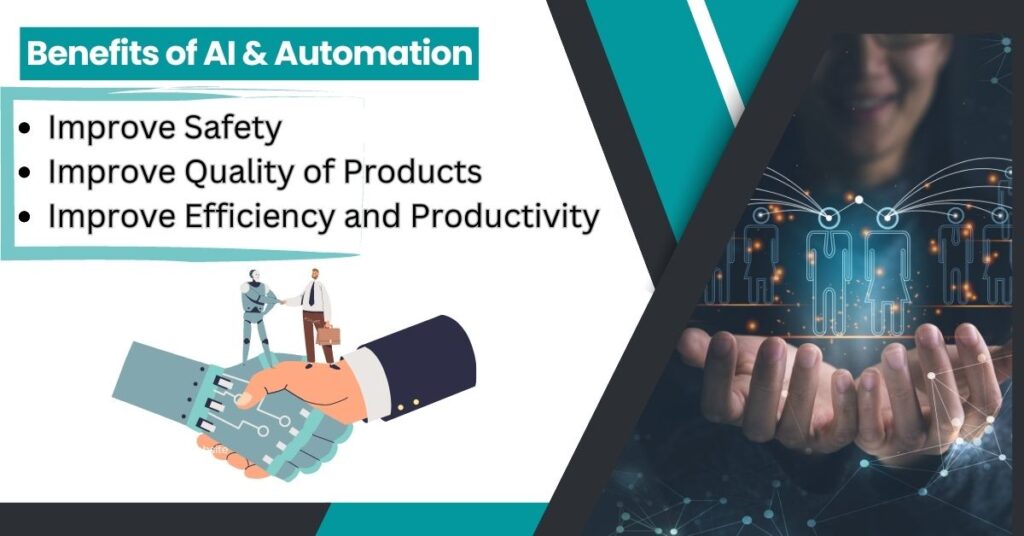
For more trending blogs, visit GivemeVPN
Despite the concerns about AI and automation replacing human workers, there are many potential benefits to these technologies. For example:
- Both can improve efficiency and productivity, allowing businesses to produce more goods and services at a lower cost.
- These technologies can also improve safety, particularly in industries such as manufacturing and transportation, where accidents can have serious consequences.
- AI and Automation can also improve the quality of products and services, as machines are less prone to error than humans.
The Limitations Of AI And Automation
However, it is important to note that Automation and AI also have their limitations. For example:
- These technologies are expensive to develop and implement, which can be a barrier for some businesses.
- Automation and AI can only perform tasks that they have been specifically programmed to do. They lack the creativity and adaptability of human workers, which can be a disadvantage in some industries.
- These technologies also lack the emotional intelligence and empathy of human workers, which can be important in industries such as healthcare and customer service.
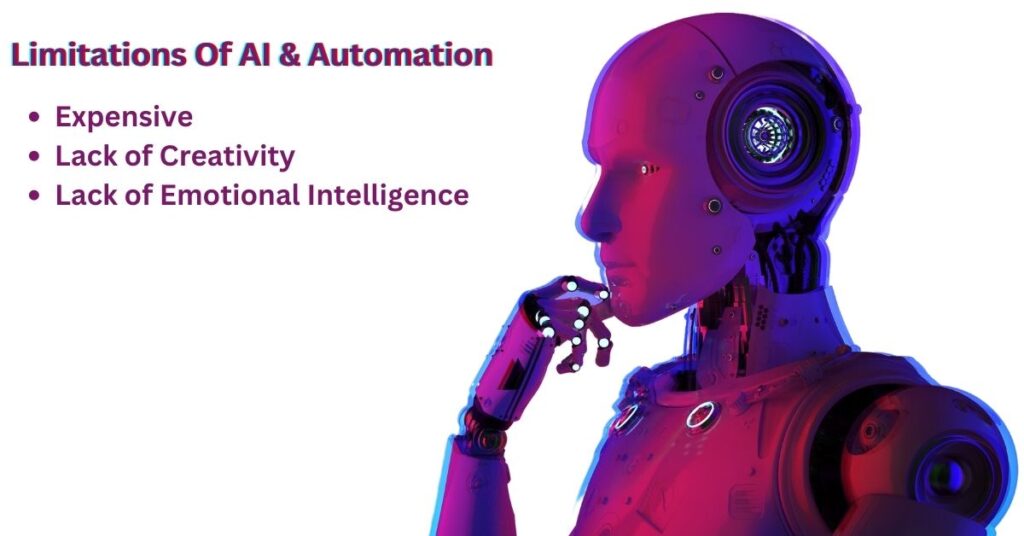
The Future Of Work
As AI and automation continue to develop and improve, it is likely that they will play an increasingly important role in the workplace. However, this does not necessarily mean that they will replace human workers altogether. Instead, it is likely that AI will complement human labor, with machines performing certain tasks more efficiently and humans focusing on tasks that require creativity, empathy, and adaptability.
To prepare for the future of work, it is important for businesses and individuals to embrace the potential of AI while also acknowledging their limitations. This means investing in education and training to develop skills that cannot be easily replaced by machines, such as critical thinking, creativity, and emotional intelligence.
It also means working to ensure that the benefits of AI and automation are distributed fairly across society, and that vulnerable groups such as low-skilled workers and marginalized communities are not left behind. This may involve implementing policies such as universal basic income or retraining programs to help workers transition to new jobs and industries.
How AI development Effect Our privacy?
More and more industries will come to rely on AI and algorithms as prominent IT firms around the world create cutting-edge new uses for these tools. This means that more people will want access to our private information.
It’s likely that in the future, the risk associated with utilizing the Internet will rise as the allure of invading our privacy grows stronger. As a result, there will be a greater need for reliable VPN software as people become more concerned about keeping their personal information and financial transactions secure online.
Users are already beginning to feel constricted by the rapid growth of AI and Automation, which poses an ever-increasing threat to online privacy. Because of this, VPNs will no longer be a luxury but a necessity. We must start using reputed VPNs like NordVPN and Surshark for privacy concerns that can arise after the development of AI and Automation.
(Read more about Best VPN of 2023)
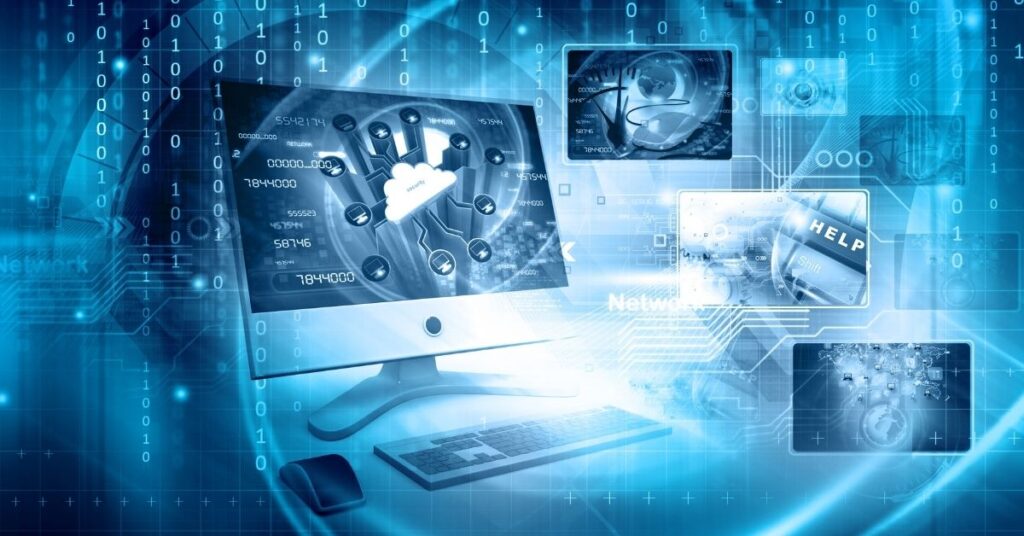
Conclusion
In conclusion, while the rise of Artificial Intelligence and Automation may bring significant changes to the workplace, it is unlikely that they will completely replace human workers. There are many tasks that require a human touch, and machines are still limited in their ability to perform creative, empathetic, and adaptive tasks.
However, it is important for businesses and individuals to prepare for the future of work by embracing the potential of AI while also acknowledging their limitations. This means investing in education and training, working to ensure that the benefits of these technologies are distributed fairly across society, and developing policies to support workers who may be displaced by automation.
Check more top VPNs like Expressvpn.
Frequently Asked Questions
Will AI bots completely replace human workers in the future?
A: It is difficult to predict the future with certainty, but it is unlikely that AI bots will completely replace human workers. While it can perform certain tasks more efficiently than humans, they lack the creativity, empathy, and adaptability of human workers. There are also many jobs that require a human touch, such as teaching, nursing, and counseling, that cannot be easily replaced by machines.
What industries are most at risk of being replaced by AI bots?
A: Industries that involve routine tasks and repetitive processes, such as manufacturing and data entry, are most at risk of being replaced by AI bots. However, even in these industries, there are still tasks that require human intervention and oversight.
What are the ethical implications of using AI bots in the workplace?
A: There are many ethical implications of using AI bots in the workplace, particularly when it comes to issues such as job displacement and privacy. There is also the potential for AI bots to be used to discriminate against certain groups of people, such as those with disabilities or those from marginalized communities.
For related information visit GivemeVPN.

